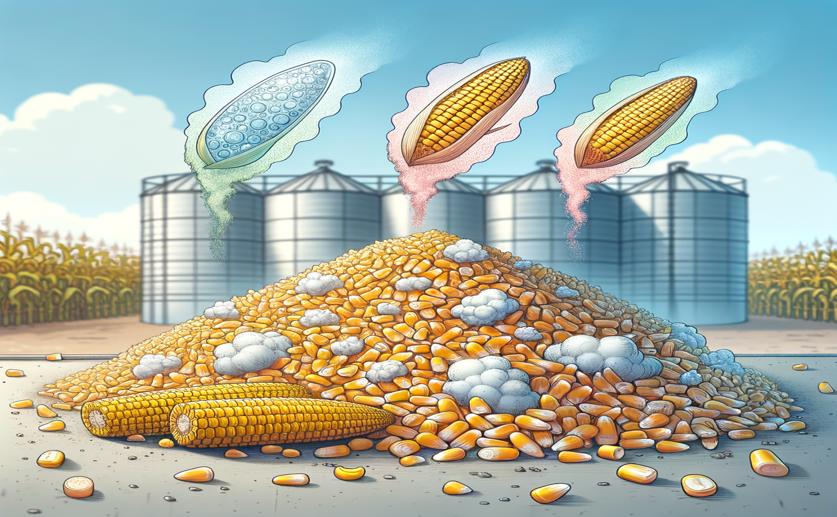
How Good Bacteria Affect Corn Silage Fermentation and Methane Emissions
Jim Crocker
8th August, 2024

Image Source: Natural Science News, 2024
Key Findings
- The study by Lanzhou University found that adding bacteriocin-producing Lactiplantibacillus plantarum strains to silage improved its quality and fermentation profiles
- These strains significantly reduced methane emissions during in vitro rumen fermentation by altering the bacterial community
- The bacteriocin-producing strains offer a promising alternative to antibiotics, enhancing dairy cow performance and reducing environmental impact
References
Main Study
1) Effects of bacteriocin-producing Lactiplantibacillus plantarum on bacterial community and fermentation profile of whole-plant corn silage and its in vitro ruminal fermentation, microbiota, and CH4 emissions
Published 7th August, 2024
https://doi.org/10.1186/s40104-024-01065-w
Related Studies
2) Ruminal methane production: Associated microorganisms and the potential of applying hydrogen-utilizing bacteria for mitigation.
3) Methane emissions from cattle.
Journal: Journal of animal science, Issue: Vol 73, Issue 8, Aug 1995
4) Silage review: Foodborne pathogens in silage and their mitigation by silage additives.



 16th January, 2024 | Jim Crocker
16th January, 2024 | Jim Crocker